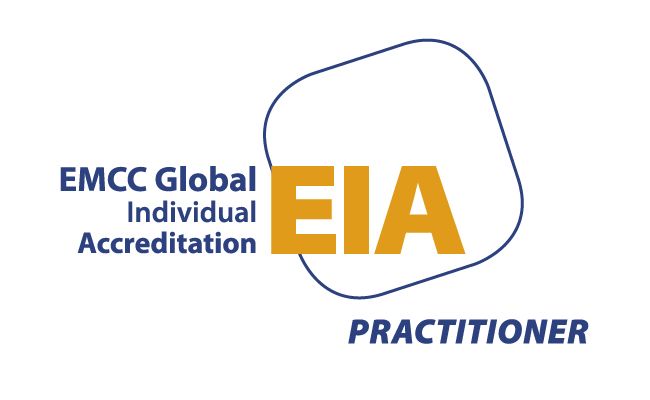New Leaders Listen Up
Barbra Carlisle • March 5, 2025
New to Leadership - Here is what no one tells you... until now

You stepped into a new role—congratulations!
But if you’re anything like most new leaders, at some point, you’ve probably had that sinking feeling…
“Am I ready for this?”
“What if I mess up?”
“What have I done—get me out of here!”
You’re not alone.
The reality is, stepping into leadership can feel like being thrown in at the deep end—expected to make big decisions, manage complex dynamics, and lead with confidence, all while trying to prove yourself.
But here’s the truth: You don’t have to have everything figured out on day one.
The Hidden Challenges of Being a New Leader
Every great leader has been exactly where you are. And while people might not talk about it openly, the first months in a leadership role are often a mix of excitement, uncertainty, and self-doubt.
The weight of decision-making feels heavier than expected. It’s one thing to have ideas—it’s another to make the final call.
You suddenly feel like you should have all the answers. But the reality? The best leaders ask great questions, not just give great answers.
You worry about being “found out.” Imposter syndrome is real—research from KPMG found that 75% of executives have experienced it at some point in their careers.
You’re managing people who might know more than you. And that can be intimidating, especially if you’re leading former peers or experienced team members.
For different leadership personalities, the struggles show up in different ways:
• The Guardian
in us worries about making the wrong call and disrupting stability.
• The Creative
in us has big ideas but struggles with the reality of execution.
• The Connector
in us focuses on relationships but might hesitate to set boundaries.
• The Nurturer
in us wants to support everyone but may avoid difficult conversations.
• The Pioneer
in us pushes forward but risks leaving the team behind.
What the Research Says: Leadership Takes Time
Confidence isn’t instant—it’s built over time. A study from Harvard Business Review found that leaders who focus on small wins each week build confidence and resilience faster than those who expect immediate success.
Most new leaders struggle with imposter syndrome.
A survey by the International Coaching Federation found that over 70% of new managers experience self-doubt in their first year.
Clarity comes with experience. Research from McKinsey shows that leaders who actively seek feedback and coaching in their first 6–12 months adapt faster and make better long-term decisions.
So, How Do You Lead with Confidence (Even When You Feel Unsure)?
1. Accept That You Don’t Have to Know Everything
Your job isn’t to have all the answers—it’s to ask the right questions, listen well, and make thoughtful decisions.
Try this: Instead of pressuring yourself to “know it all,” start each day by asking:
- What’s one thing I can learn today?
- Who can I ask for insight or advice?
2. Build Relationships, Not Just Authority
Your influence as a leader comes not from your title but from trust. Spend time getting to know your team, their challenges, and what they need to thrive.
Try this: Set up 1:1 check-ins with key team members—not just to talk work, but to understand their motivations and perspectives.
A Gallup study found that leaders who build strong relationships with their teams see 50% higher engagement and performance.
3. Set Boundaries Early
New leaders often fall into the trap of trying to do everything—which leads to burnout. Boundaries are key to sustainable leadership.
Try this:
- Be clear about working hours (for yourself and your team).
- Prioritise ruthlessly—not every issue is your issue.
- Practice saying no with confidence.
Research from Stanford found that leaders who set clear boundaries experience 35% lower stress and make better long-term decisions.
4. Seek Out Feedback—But Don’t Take It Personally
Feedback isn’t a sign you’re failing—it’s a tool for growth. Great leaders actively seek it, but they don’t let criticism shake their confidence.
Try this: Ask your team, “What’s one thing I could do better as your leader?” and listen with curiosity, not defensiveness.
A study in the Journal of Applied Psychology found that leaders who regularly ask for feedback improve their effectiveness by 22% within the first year.
5. Play the Long Game—Leadership Is a Marathon, Not a Sprint
You don’t need to have it all figured out today. Focus on consistent, small improvements rather than overnight success.
Try this: End each week with a reflection: What’s one thing I learned? What’s one thing I want to improve next week?
Research from MIT Sloan found that leaders who engage in weekly reflection are 25% more effective in decision-making and team leadership.
Final Thought: You’ve Got This
It’s okay to feel unsure. Every leader starts somewhere. What matters isn’t perfection—it’s your willingness to learn, adapt, and lead with intention.
So, if you’re in the early stages of leadership, or supporting someone who is, remember:
✔️ You don’t have to be perfect to be effective.
✔️ Your team values authenticity more than authority.
✔️ The best leaders grow into their roles—one step at a time.
What’s one thing you’ll focus on this week to step into leadership with confidence?




